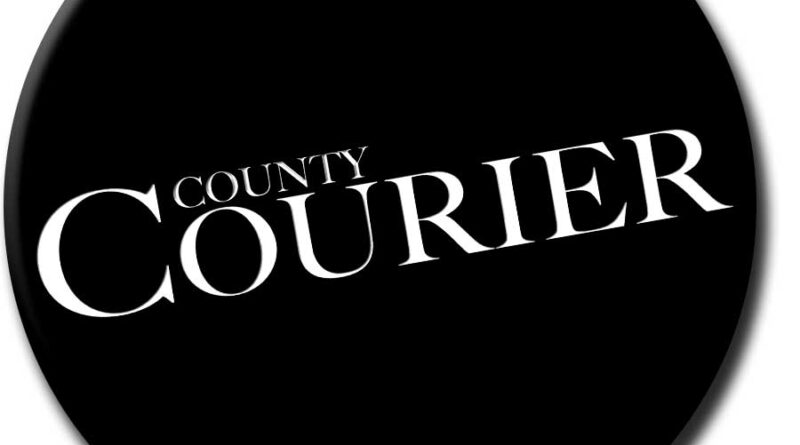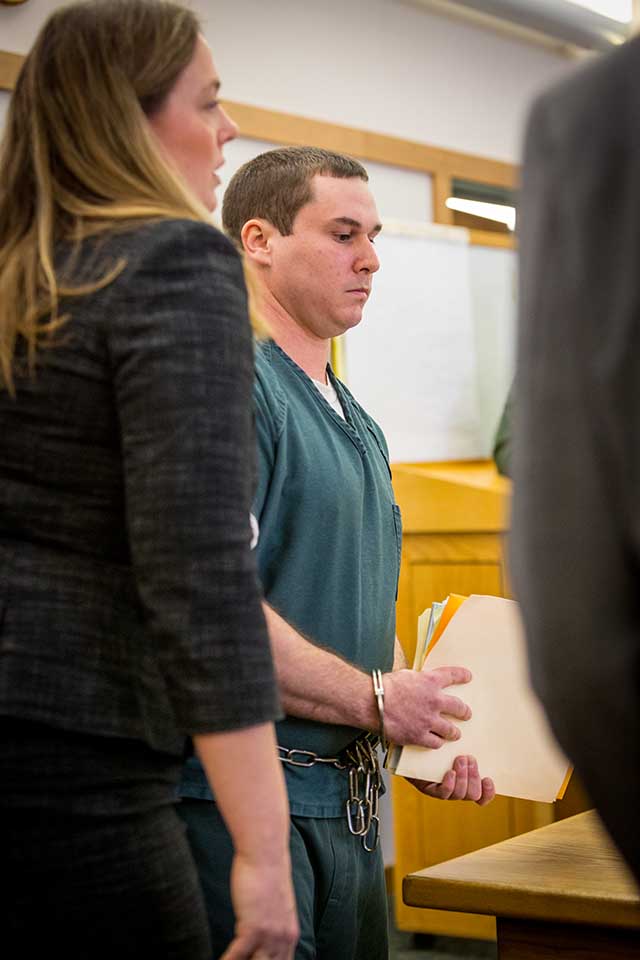JUDGE: NOT ENOUGH EVIDENCE TO HOLD GEORGIA MURDER SUSPECT WITHOUT BAIL
[bar group=”86″]
By Gregory J. Lamoureux
ST. ALBANS: Ethan Gratton, the 26-year-old man that prosecutors say murdered a Fairfax man and severely injured a second, in the beginning of the year, has been released on $100,000 bail with at least $10,000 of that being cash.
According to court records, Judge Gregory Rainville ordered the bail and conditions set in the case.
Gratton’s conditions include not to use or possess any regulated drugs, alcohol, or dangerous weapons.
He must also reside with his parents, according to the court order.
The release order comes after a four-month long bail review phase, where the court is obligated to look into the case more thoroughly and determine if there is enough evidence to hold Gratton without bail.
State law only allows defendants to be held without bail when “the evidence of guilt is great.”
This evidence must not only prove to a logical thinker that Gratton was the one who shot Hill and Britto, but that he did so with the intent to kill.
Rainville noted in his decree that intent is rarely provided by direct evidence, instead, it must be inferred by the defendant’s actions and circumstantial evidence.
Rainville noted that it is the Prosecution’s burden to prove the defendant acted without the influence of “passion or provocation.”
In this case, Gratton’s defense has asserted that he was acting to defend himself, thus, the killing was provoked.
Rainville cited case law that he believed applied to the case, “evidence of a defendant’s diminished mental capacity in a homicide case, whether due to intoxication or mental condition… may negate the State’s proof of intent.”
Rainville said because it could be inferred Gratton had been provoked by one or both of the men attacking him prior to the shooting, it could be determined by a jury that Gratton’s actions were a “bona fide case of mutual combat.”
The second and much more well-known part of the murder case that Gratton’s case brings up, is whether he was acting in self-defense. That’s the “unlawful” portion of the killing.
The law says a killing in “self-defense or legal necessity” can be considered a lawful killing.
In this case, Rainville decided in his nine-page memo the state did not provide sufficient evidence that Gratton was acting outside of the self-defense arena.
[bar group=”86″]
“Here, the evidence strongly supports finding that (Gratton) was struck in the face before he shot either man: as a result, the State must prove (Gratton) did not act in self-defense,” Rainville wrote.
The case comes down to malice and how a jury might decide. The law is written that the Judge must identify “the evidence of guilt is great,” which Rainville ultimately decided the evidence of guilt is not great enough.
Although the State’s theory that Gratton left the scene of the assault to go get the gun, Rainville noted the evidence presented at the hearing left many of the facts open to speculation.
“…The evidence, even when viewed in the light most favorable to the State, is not so limited or compelling as presently presented,’ said Rainville.
This does not mean a jury might not find Gratton guilty when it comes time for trial, it just means there is not enough evidence of guilt for the Judge.
Gratton’s conditions of release, at least in part, come from the psychological evaluation of the defendant after the shooting.
That evaluation, conducted by Doctor Weker, a psychiatrist based out of Montpelier, determined that Gratton’s mental state would benefit from being released.
According to court documents, Gratton was also diagnosed with a Traumatic Brain Injury, a possible mild neurocognitive disorder due to that TBI. He was also diagnosed with a “major depressive episode” related to the shooting and possibly post-traumatic stress disorder related to the incident.
One of the major concerns of releasing Gratton, besides the potential risk to public safety, was the risk Gratton could commit suicide.
In the 911 call at the scene of the shooting, Gratton could be heard in the background threatening his own life instead of going to prison.
The psychologist that evaluated Gratton told the court in a written statement that Gratton’s danger to himself would decrease if he was released into the environment he grew up in and did not engage in “disinhibiting forces” such as alcohol or drug use.
[bar group=”86″]






